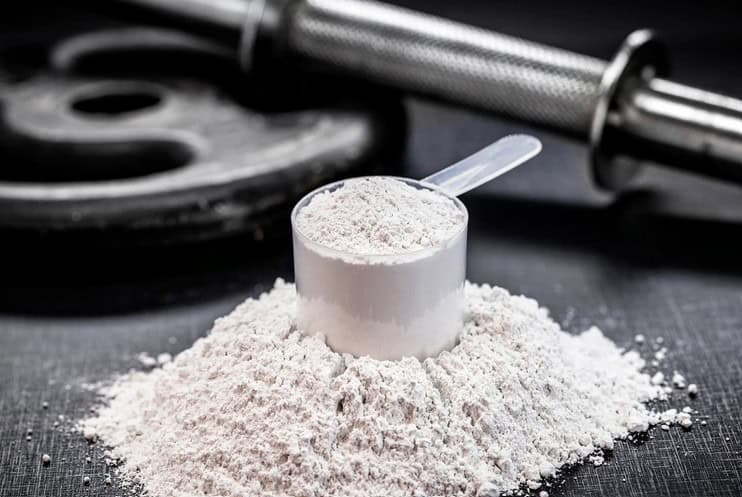Collagen and Creatine: Your Top Questions Answered
If you’ve been scrolling through wellness posts lately, you’ve probably seen collagen powders and creatine tubs popping up everywhere. Both are praised as must-haves for midlife vitality, glowing skin, toned muscles, and better energy. But there’s also a lot of confusion.
As a naturopath, nutritionist and counsellor working with women through menopause, I hear these same questions every week. So, let’s unpack the most common ones and the science behind them so you can decide if either (or both) might be right for you
1. What exactly are collagen and creatine?
Collagen is a structural protein, the ‘glue’ that holds our body together. It gives strength and elasticity to skin, tendons, ligaments, cartilage, and bone. Our body naturally makes it from amino acids (mainly glycine, proline, and hydroxyproline), but production slows as we age, particularly after oestrogen levels drop in menopause.
Creatine, on the other hand, is a compound that fuels energy production in muscle and brain cells. It helps recycle ATP, your body’s main energy currency. We make some creatine ourselves from amino acids, but we also get it from protein foods (especially meat and fish).
So, while collagen supports structure, creatine supports function – two different roles, both relevant for midlife women.
2. Can collagen really help my skin, joints, or bones?
Research suggests that hydrolysed collagen peptides (small, easily absorbed fragments) can improve skin elasticity and hydration and may ease joint stiffness or mild osteoarthritis pain. Some studies show collagen works best alongside resistance exercise and possibly with cofactors (vitamin C, D, zinc, copper and calcium) from a varied diet.
Typical doses used in studies are 5–15 grammes daily. It doesn’t need to be taken on an empty stomach or at a specific time.
However, collagen isn’t a complete protein; it lacks tryptophan and is low in branched-chain amino acids. So, while it’s a helpful addition, it shouldn’t replace other protein sources like eggs, fish, meat, legumes, or tofu. Keep total daily protein adequate (meals first
3. Will creatine make me bulky or bloated?
This is the most common myth I hear, especially from women who associate creatine with bodybuilders.
The truth? Creatine doesn’t make you bulky. What it does is increase water retention inside muscle cells, not under the skin, which can slightly raise your weight on the scales but not body fat (this can be tracked with body composition technology).
That cellular hydration actually protects muscle fibres and supports better recovery.
For women over 40, creatine has impressive data for:
- Preserving muscle mass and strength
- Supporting bone density indirectly through stronger muscles
- Enhancing mental focus and mood stability
- Improving exercise tolerance and energy, even in non-athletes
The standard dose is 3–5 grammes of creatine monohydrate daily. There’s no need for high “loading” doses. Take it consistently, ideally with a meal and plenty of water.
4. Can I take collagen and creatine together?
Absolutely, and for many women, this combination makes perfect sense.
Collagen supports tissue strength, tendons, joints, skin, while creatine supports energy and muscle.
Used together, they create a holistic foundation for strength, mobility, and confidence in midlife.
For example:
- Collagen keeps joints and fascia supple.
- Creatine helps you lift, walk, and move with more power and less fatigue.
They complement each other beautifully, especially when combined with a protein-rich diet and regular resistance exercise.
5. Are there any side effects or safety concerns?
Both are considered very safe when used at appropriate doses.
Collagen:
- Side effects are rare but can include mild bloating or digestive discomfort.
- Choose a reputable brand with minimal additives and clear sourcing (marine, bovine, or porcine).
- Those with seafood allergies should avoid marine collagen.
Creatine:
- May cause small, harmless weight fluctuations due to muscle hydration.
- It can raise blood creatinine levels, which might look unusual on a blood test but doesn’t indicate kidney damage in healthy individuals.
- Avoid in severe renal/kidney disease, but otherwise, long-term use has strong safety data.
- How long before I notice results?
This depends on what you’re using it for.
- Collagen: expect visible or physical changes after 8–12 weeks. It’s slow and steady.
- Creatine: many notice improvements in energy or workout recovery within 2–3 weeks, especially when combined with consistent movement.
Remember, these aren’t quick fixes, they’re steady, cumulative supports that work best within a healthy, well-fed body.
- Is supplementation always necessary?
Not always. Collagen and creatine should enhance, not replace, a nutrient-rich diet.
- You can support collagen naturally by eating enough protein and foods containing vitamin C, zinc, and copper.
- You can boost creatine by including fish, chicken, or red meat a few times per week (if that fits your diet).
However, many midlife women eat less protein than they think, and vegetarian diets supply little creatine, so supplementation can be a practical bridge to meet your needs.
The Bottom Line
Collagen and creatine each offer something valuable for women navigating the physical shifts of menopause:
- Collagen supports structure, repair, and resilience.
- Creatine supports strength, stamina, and clarity.
Used wisely, alongside whole foods, hydration, and movement, they can help women feel steadier in their bodies and more confident in their energy.
Neither is a magic bullet, but both are powerful allies when used with knowledge and care.
If you’re unsure where to start, talk with Sue, a qualified naturopath or nutrition practitioner who understands your health picture, including your activity level, protein intake, and any medications. The right guidance turns trendy supplements into truly therapeutic tools. https://handcraftedhealth.com.au/handcrafted-health-neutral-bay-book-online-now/
Because at the end of the day, the goal isn’t to chase youth, it’s to support a body that feels strong, vital, and very much alive at every stage.
Written by Sue Stevens – Naturopath, Nutritionist & Counsellor
Helping women thrive naturally through menopause and midlife.

